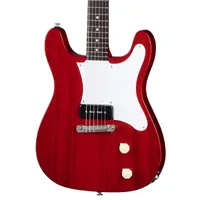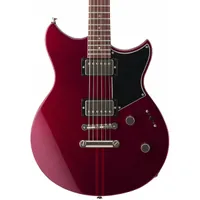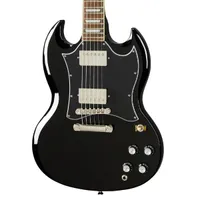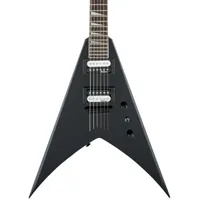Best electric guitars under $500 in 2025: 10 budget electrics offering maximum value
Our top cheap electric guitars that deliver killer tones, slick playability, and serious bang for your buck from Squier, Epiphone, Yamaha and more
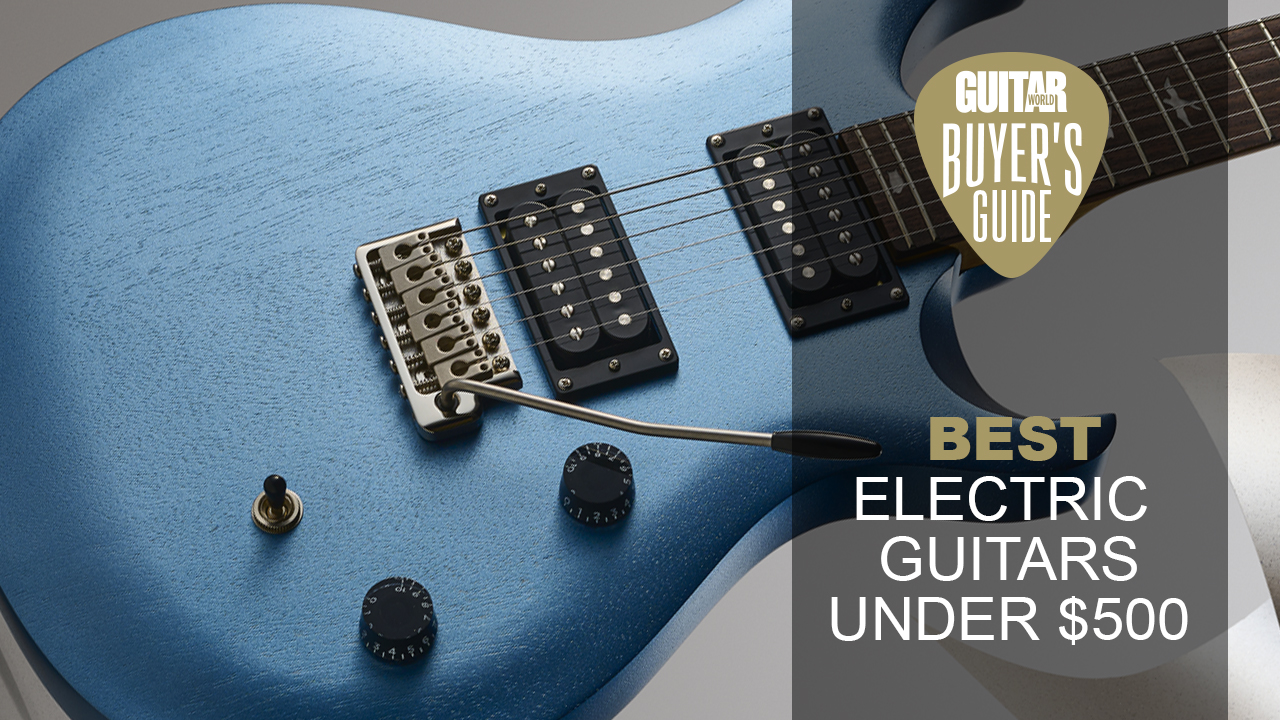
'You get what you pay for' is a narrative that is thrown around throughout life, and the world of guitars is no different. While some enthusiasts will claim you have to spend big to get a great guitar, this simply isn’t true, and some of the best bang-for-your-buck electric guitars can be found for under $500.
Over the last couple of decades, guitar brands have seriously stepped up their game in the affordable market. That friendly arms race between manufacturers has been a huge win for budget-conscious players, with more great-sounding, well-built guitars available than ever before. Whether you're chasing vintage vibes or modern metal tones, there's a budget model out there that'll fit the bill, and your wallet.
So, if you’re looking to stretch your hard-earned cash that little bit further, check out our list of the best electric guitars under $500 - and if you want my top pick straight away, then I've given it to the PRS SE CE 24 Standard Satin. This is a seriously good, well-made guitar that has excellent build quality and sounds fantastic.
For more information, scroll to our FAQs section to find the answers to the top questions about budget guitars.
On the hunt for guitar gear savings this Black Friday? Shop our handpicked selection of the best Black Friday guitar deals.
Our top picks
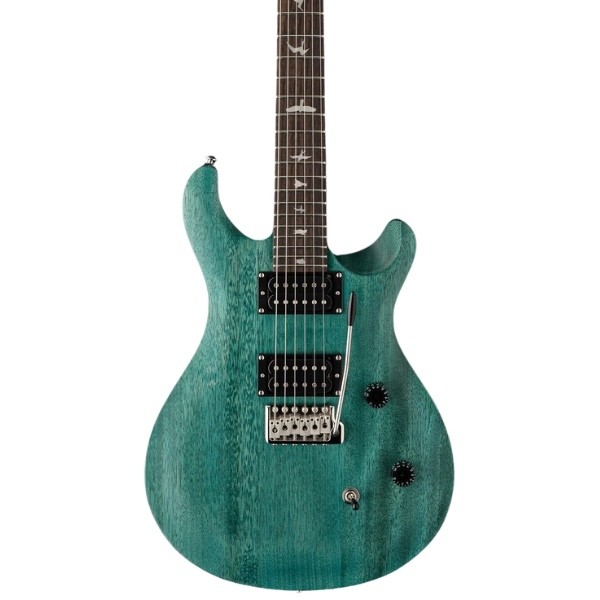
It's the cheapest of all the PRS SE guitars, but don't let that put you off. The CE 24 Standard Satin is unbelievable value for money, and our top pick for best electric under $500.
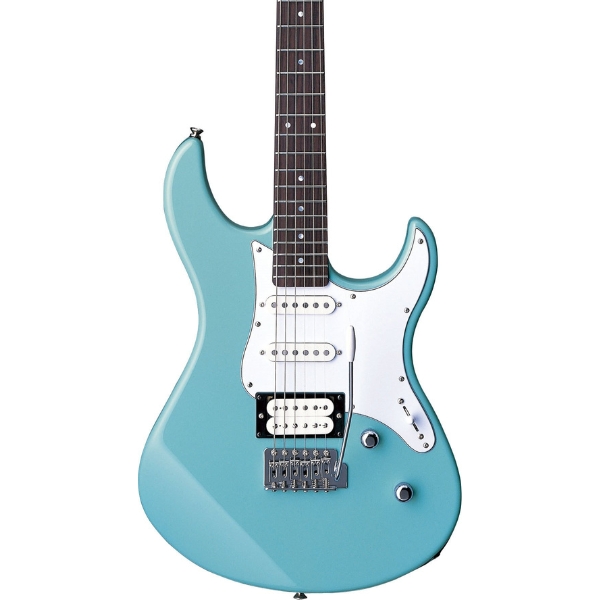
If you're looking for the perfect beginner electric guitar on a budget, this Yamaha Pacifica 112V is a fantastic choice that gives great sound and value for money.
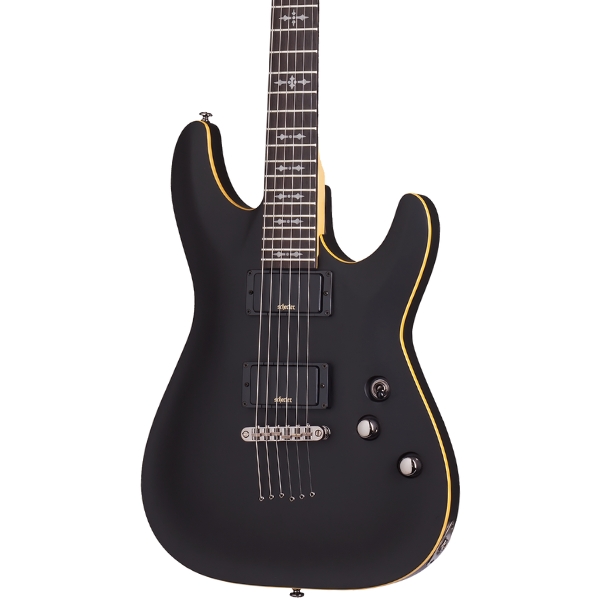
Want a guitar that you can properly chug with? The Schecter Demon-6 is about as good as it gets for the sub $500 mark, with a pair of powerful humbucking pickups and a fast-playing neck.
Best overall
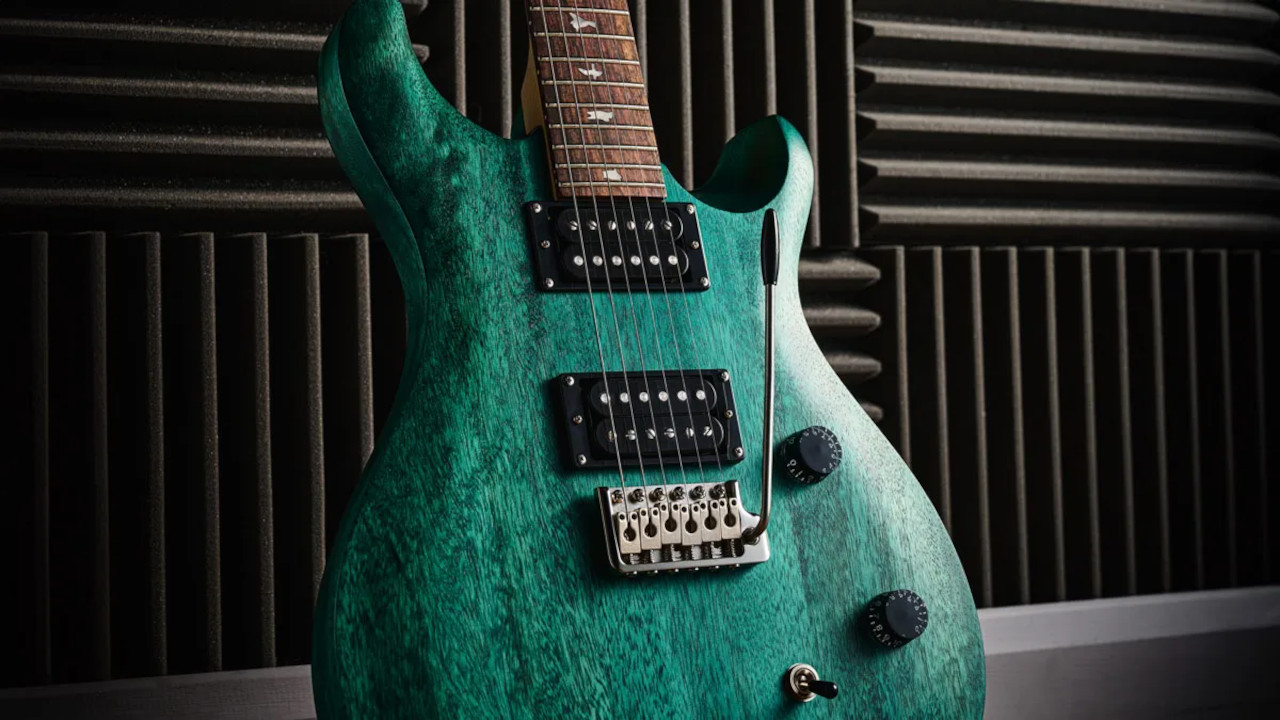
Specifications
Reasons to buy
Reasons to avoid
✅ Buy if you want a versatile instrument: Thanks to its two humbuckers with coil split, this guitar can cover a lot of sonic ground.
❌ Avoid if you prefer a plainer guitar: PRS' rather lavish styling can put players off, so if you prefer a more traditional look then avoid this.
Build quality rating: ★★★★★
Playability rating: ★★★★★
Sounds rating: ★★★★★
Overall: ★★★★★
When PRS dropped the SE CE 24 Standard Satin earlier in the year, we honestly thought they'd made a mistake with the price. It's the cheapest PRS available at the moment, but delivers unbelievable value for your hard-earned cash.
This guitar saves some of the costs by doing away with the typical PRS maple cap, which is where it gets the 'Standard' moniker from. But this by no means detracts from the guitar's construction, it's incredibly well put together and looks fantastic. The slightly plainer build probably won't sway those who don't like the looks of a PRS, but we love it.
The classic wide-thin neck profile is present here and is a great all-rounder neck shape in our opinion, delivering silky smooth playability. With the coil split function, the SE CE 24 Standard nicely bridges the gap between a Les Paul and a Strat, giving you the tones of each and balancing brilliantly between modern and vintage tones. It's a stunning feat and at just below the $500 mark, an easy pick for the top spot in this guide.
Watch our video demo...

"For any player, at any level, needing to cover a lot of sounds, this really takes some beating: the pared-down essence of PRS, if you like, and a guitar we really can’t fault. Try one of these before someone realises they’ve made a mistake with the price."
Read more: PRS SE CE 24 Standard Satin review
Best for beginners
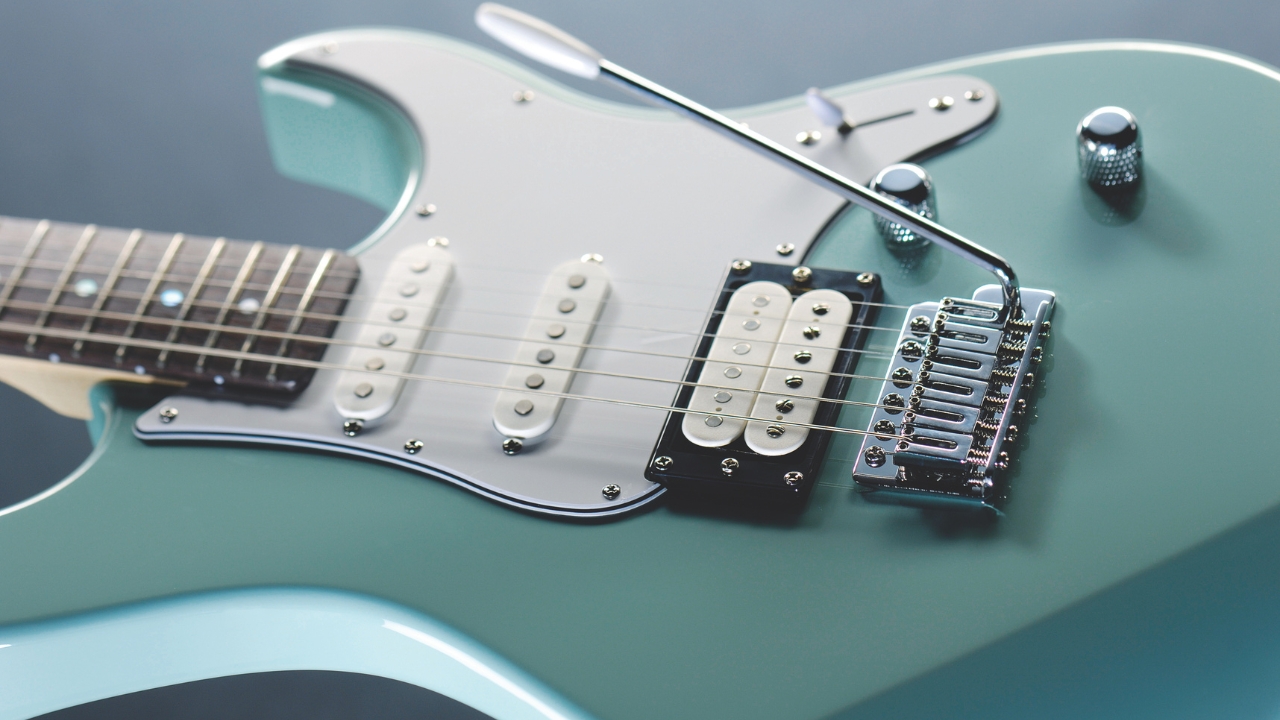
2. Yamaha Pacifica 112V
Our expert review:
Specifications
Reasons to buy
Reasons to avoid
✅ Buy if you want a beginner guitar: As well as being fantastic value for money, this guitar plays great for beginners. You really can't go wrong.
❌ Avoid if the S-style aesthetic isn't your style of choice: The design on the Yamaha Pacifica 112V is a bit on the safe side, so another guitar might just suit you better.
Build quality rating: ★★★★½
Playability rating: ★★★★★
Sounds rating: ★★★★½
Overall: ★★★★½
There is a reason the Yamaha Pacifica 112V has remained a go-to recommendation for decades: it just gets the job done. Simple, solid, and seriously versatile, this no-nonsense S-style guitar punches well above its weight in tone and playability.
With its alder body, silky satin-finished maple neck and Alnico V pickups, the Pacifica delivers classic single-coil sparkle and humbucker grit without breaking a sweat. It is the kind of guitar that will not intimidate first-timers but still offers enough tonal flexibility and build quality to keep more experienced players coming back.
Sure, more adventurous players might find the S-style aesthetic a little on the safe side, but hey, classics are classics for a reason. And if the design doesn’t quite light a fire in your belly, Yamaha offers a solid range of finish options to mix things up.
Add in the comfortable upper fret access and smooth trem action, and there is plenty here to keep new players engaged and inspired.

"There are plenty of reasons why the Yamaha Pacifica 112V is still one of the best options for beginners. Look past that learner image, however, and you’ll find a versatile, well-made guitar that will bring something extra to any player’s roster."
Read more: Yamaha Pacifica 112V review
Best metal guitar
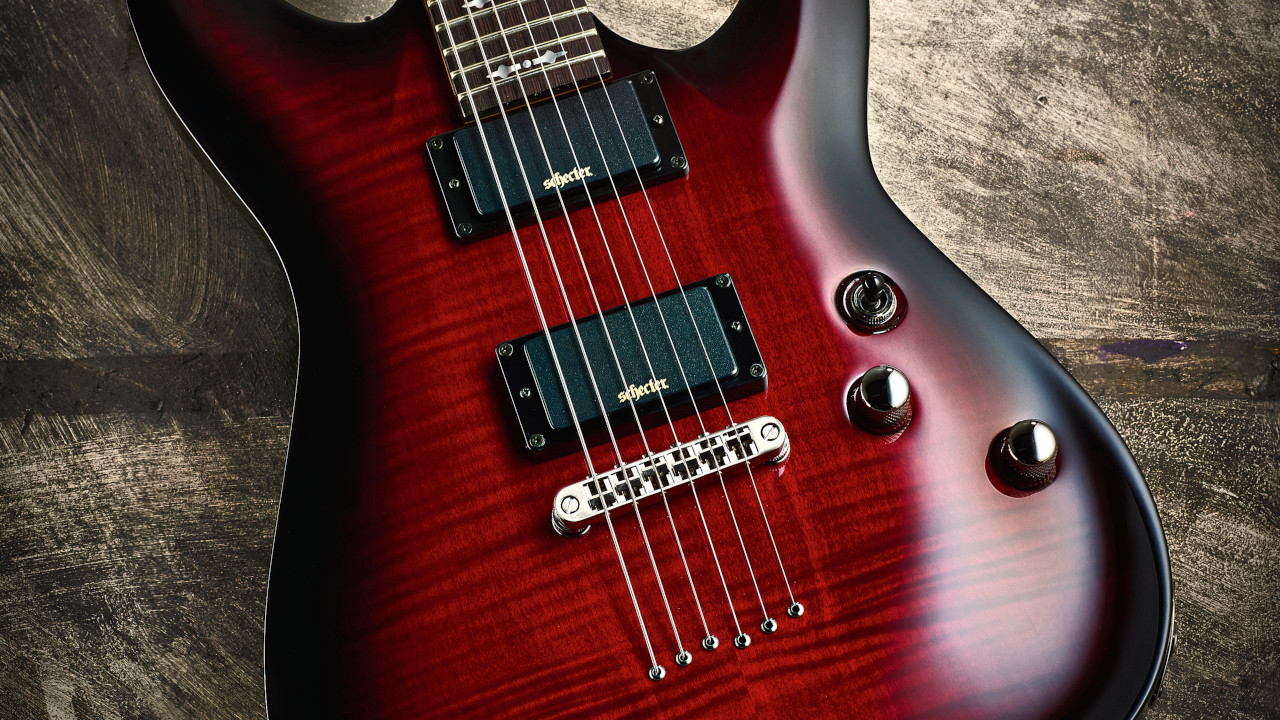
3. Schecter Demon-6
Our expert review:
Specifications
Reasons to buy
Reasons to avoid
✅ Buy if you want a metal guitar: With its high output humbuckers and fast-playing neck, the Demon-6 is the perfect guitar for playing metal on a budget.
❌ Avoid if you like vintage tones: With it being so geared towards metal, it's probably not the best choice if you're really into Delta blues.
Build quality rating: ★★★★½
Playability rating: ★★★★½
Sounds rating: ★★★★½
Overall: ★★★★½
Smooth, affordable, and ferocious all at once, the Schecter Demon-6 is perfect for unleashing your inner speed demon. The guitar's thin-C profile neck, cut from maple with a satin finish, is incredibly quick and rewards a light touch.
The bridge is simple but well-built, while the guitar's active pickups - powered by an easily accessible nine-volt battery - are absolutely terrific. Otherwise, the updated Demon-6 remains the same as its predecessors, with industrial black chrome hardware, burled tone, and volume knobs, and a Crimson Red Burst finish.
Tone-wise, the Demon-6 truly lives up to its name. The bridge humbucker is a workhorse with strong, growling mids and an absolutely diabolical amount of high-end - a gold mine for metal soloists, no doubt.
Those who don't wish to summon demonic forces with their playing will find that the Demon-6's cleaner tones are just as satisfying. Any punchy classic rock riffs are a breeze, while the cleanest settings yield startlingly articulate leads that are more than adequate for even the most subtle of parts.
This electric guitar is - despite its maker's metal guitar target audience - surprisingly versatile.
Best Stratocaster
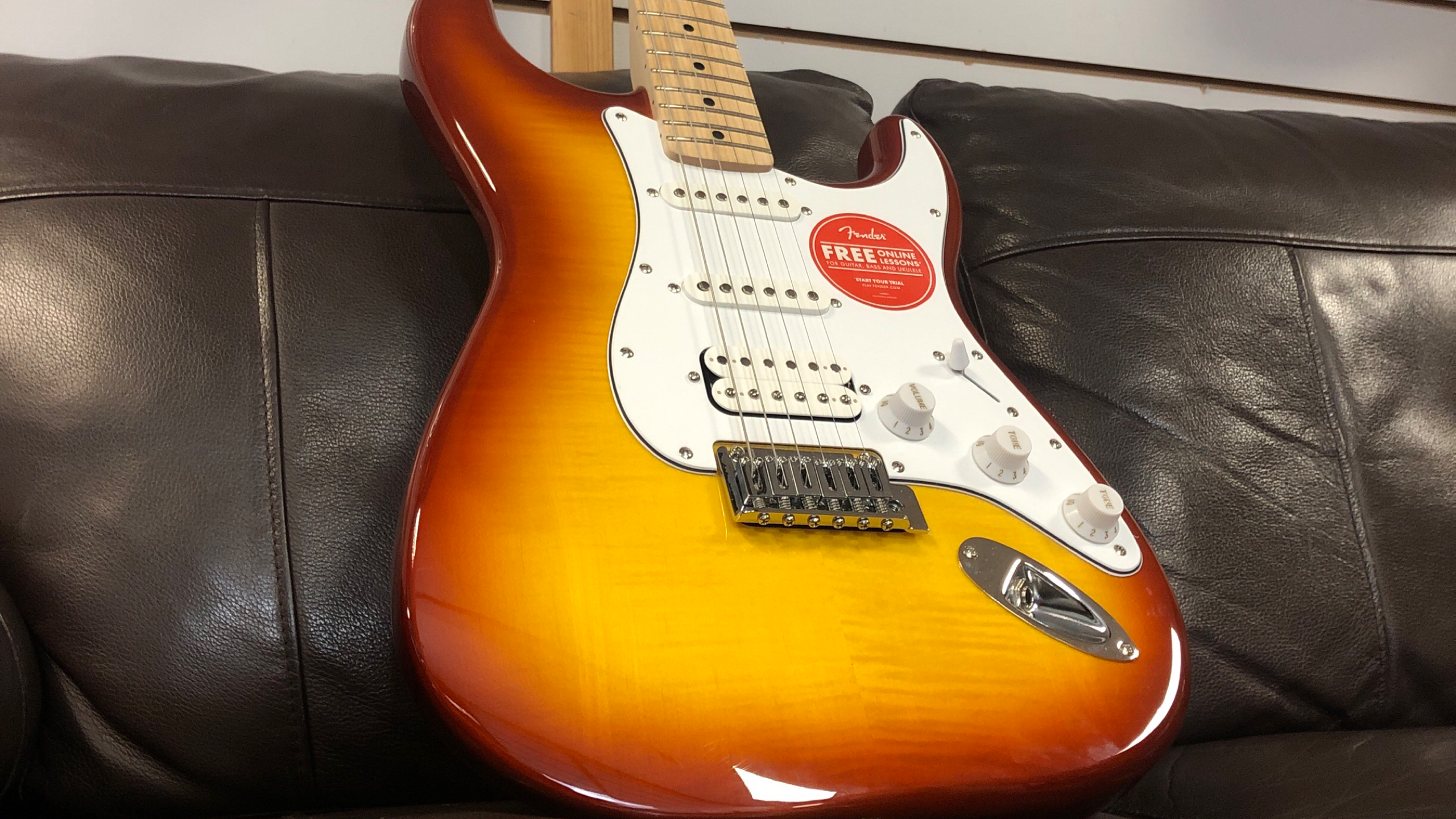
Specifications
Reasons to buy
Reasons to avoid
✅ Buy if you want to cover any style: Having both humbucker and single coil pickups means you can go from metal tones to jazz at the flick of a switch.
❌ Avoid if you prefer vintage guitars: While we love this guitar's versatility, we can understand some players will prefer the classic Strat lineup of three single coil pickups.
Build quality rating: ★★★★½
Playability rating: ★★★★½
Sounds rating: ★★★★★
Overall: ★★★★½
The Fender Strat has long been considered one of the most versatile guitars of all time, and when you throw a high-output ceramic humbucker into the mix, it gets even better.
The Affinity series may be the entry-level point into the varied catalog of Fender guitars, but it certainly doesn’t hold back on quality. Featuring an attractive flame maple top, a slim and comfortable C-shaped neck, and the iconic large 70s headstock, it’s hard to believe this guitar comes in under $500!
The ace up the sleeve of this budget-friendly Strat is the Squier humbucker and single-coil neck and middle pickups. This allows you to achieve any tone imaginable with a simple flick of the 5-way selector switch.

"Guitar shopping on a budget has never looked this good and the Affinity Stratocaster FMT HSS has plenty of tones to match its sizzling aesthetic thanks to the HSS configuration. If you’re a beginner player looking for something comfortable and sleek that will help you progress to the intermediate level, this Stratocaster will get you there in style."
Read more: Squier Affinity Stratocaster FMT HSS review
Best Les Paul
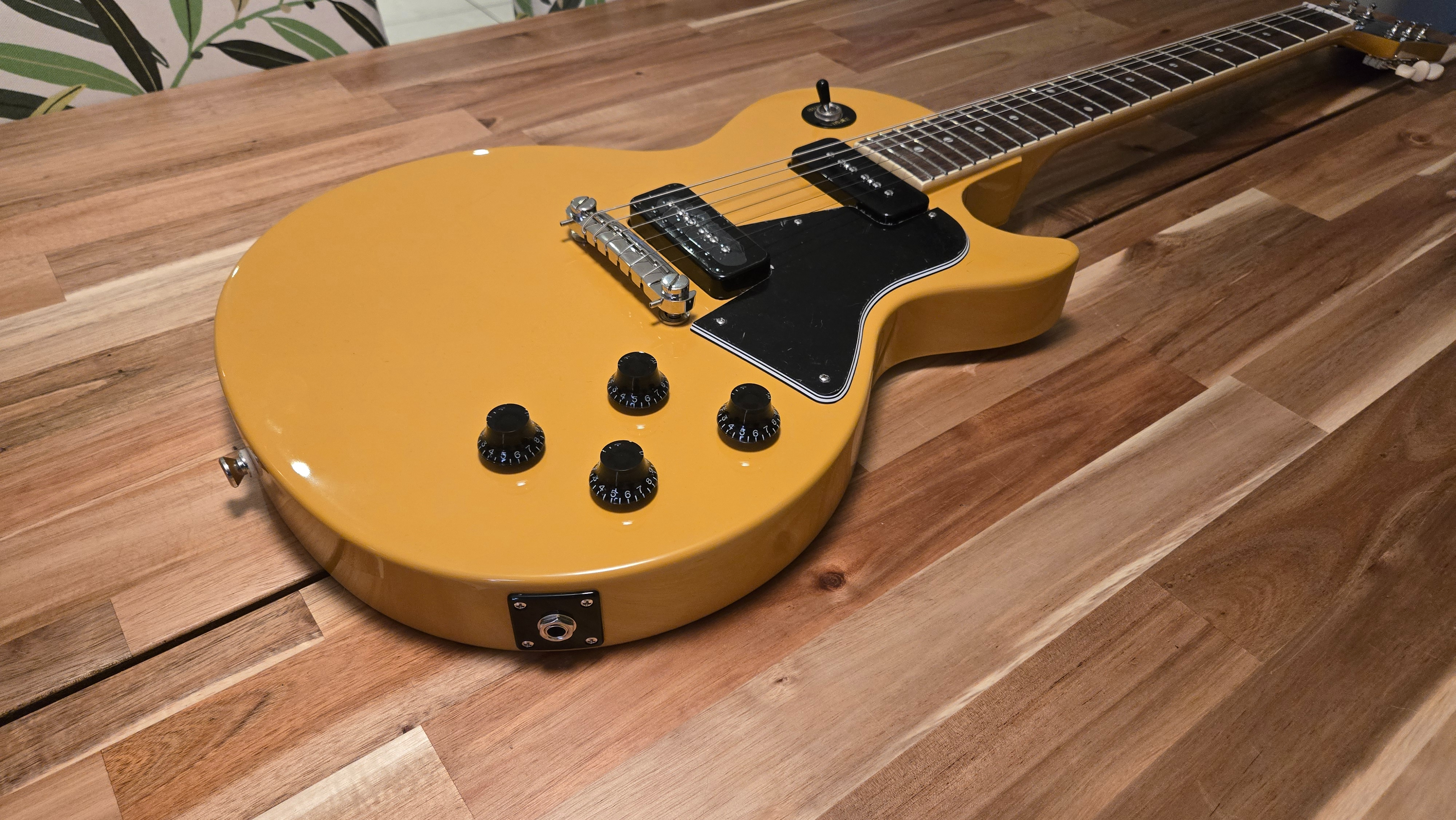
Specifications
Reasons to buy
Reasons to avoid
✅ Buy if you want a guitar for rock and punk: As well as looking absolutely incredible, this Epiphone Les Paul features two P-90 pickups that sound amazing.
❌ Avoid if you want really heavy tones: While we love P-90 pickups, these single coils can get a little noisy when you add too much gain.
Build quality rating: ★★★★★
Playability rating: ★★★★½
Sounds rating: ★★★★½
Overall: ★★★★½
For us, it doesn’t get much better than the Epiphone Les Paul Special at the sub $500 price point. This version carries two P90 pickups and the classic Gibson TV Yellow finish, making an incredible guitar for relatively little money.
Sitting halfway between a humbucker and a single coil, the P90 pickups deliver an exceptional tone that goes from a gritty growl right the way through to sumptuous clean tones. It’s got quite a cutting tone that sits well in a full band mix, with bags of sustain and complex harmonic content.
The 50s fat neck profile might at first feel quite hefty, especially if you’re a beginner player, but once you get used to it you get unrivaled playability. The feel is exceptional and makes this guitar hard to put down. The only negative we can see here is that there’s only one color available.

"The Epiphone Les Paul Special is a dream to play. It sounds great, looks a million dollars in TV Yellow, and gives you a different sonic edge to a regular Standard. Don’t write these off as budget guitars - there’s plenty of character here and lots to love."
Read more: Epiphone Les Paul Special TV Yellow review
Best offset guitar
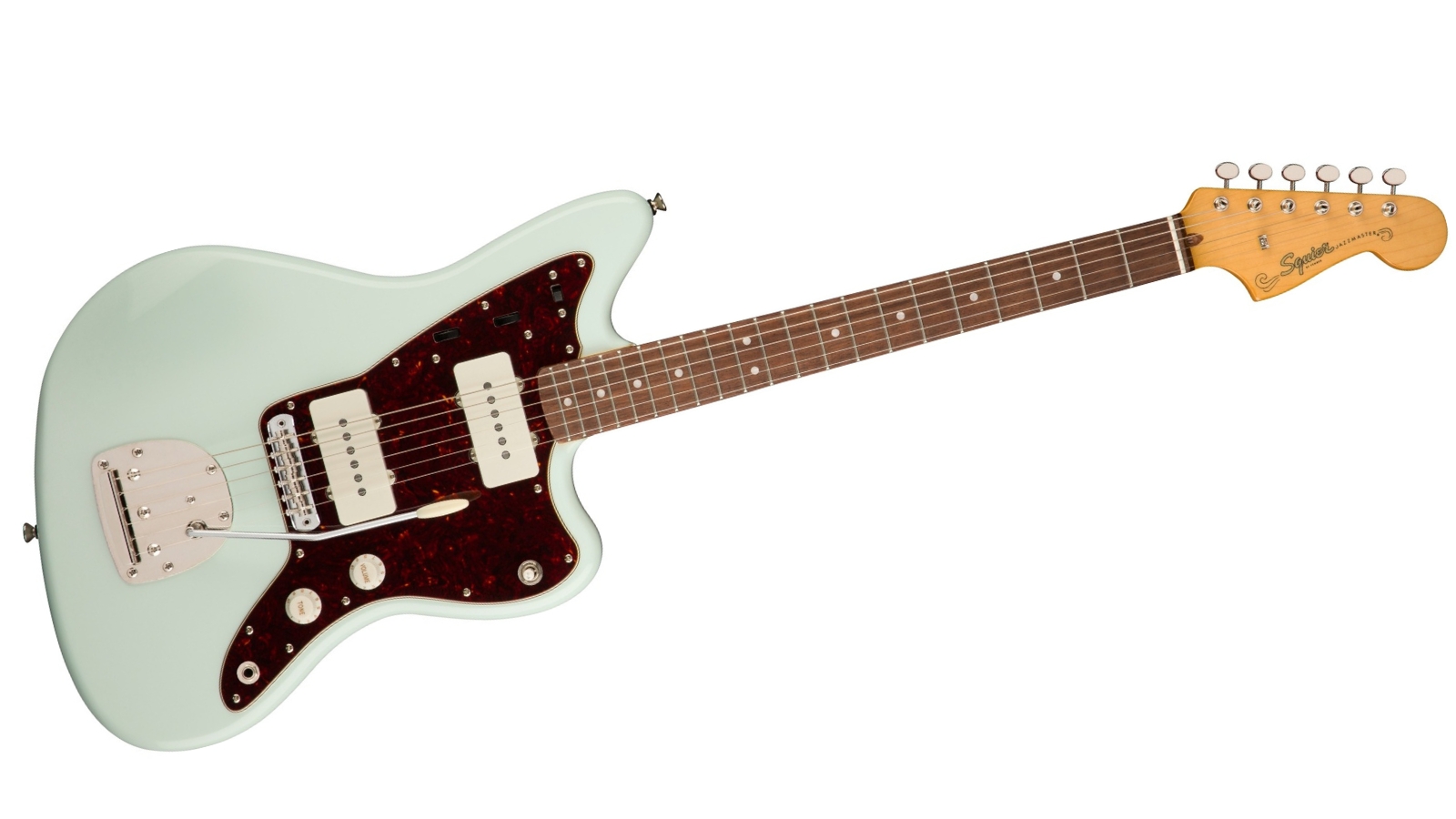
6. Squier Classic Vibe 60s Jazzmaster
Our expert review:
Specifications
Reasons to buy
Reasons to avoid
✅ Buy if you want an offset guitar: Based on one of the original Jazzmaster designs, this guitar embodies all the principles of a great offset instrument at an excellent value price point.
❌ Avoid if you don't like tweaking your instrument: The Jazzmaster tremolo can be a finicky beast, and not everyone will love having to adjust string gauges to find the best balance.
Build quality rating: ★★★★½
Playability rating: ★★★★½
Sounds rating: ★★★★½
Overall: ★★★★½
With the recent surge in popularity of offset guitars, the Squier Classic Vibe 60s Jazzmaster is a great way to get your hands on an offset without spending loads of money. Its combination of quality build and unique tone makes it a great choice for any guitarist looking for that particular flavor of tone.
The Jazzmaster pickups are single coils but have a different construction to those you’d find on a Strat or Tele. It’s a super versatile sound that’s equally at home laden with fuzz and reverb for alt-rock sounds as it is actually playing clean jazz licks.
The combination of a three-way pickup switch, 2 thumbwheel controls, two volume controls, and a single tone knob means you’ve got a huge selection of sounds at your fingertips. The classic design of the Jazzmaster tremolo can sway people either way, but if you’re the sort of player who wants something different from a Strat or Tele, this guitar is a great choice.
Also consider
Above you'll have the majority of styles covered for guitars under the $500 mark in our opinion. However, we appreciate not every guitarist is the same, so here are some more left-field options that deliver excellent value for money:
Epiphone Coronet
Mahogany body | Mahogany neck | Rosewood fingerboard | 1x PRO P90 pickup
Equipped with a single Dogear P90 in the bridge position, the Coronet means business at first glance. You can expect gritty, abrasive-driven tones perfect for blues and rock, and with it being a fat single coil, the cleans are smooth, punchy, and prominent in any mix.
★★★★½
Read more: Epiphone Coronet review
Yamaha Revstar RSE20
Mahogany body | Mahogany neck | Rosewood fingerboard | YGD-designed VH3 humbuckers
These stylish and well-crafted instruments now come with a lightweight chambered mahogany body, which Yamaha says is to "sculpt tone and reduce weight". The RSE20 is also loaded with a dual set of Yamaha Alnico V humbuckers, which, when paired with a 5-way selector switch and the Revstar's high-pass "Dry" switch, deliver endless tonal possibilities.
★★★★½
Read more: Yamaha Revstar RSE20 review
Epiphone SG Standard
Mahogany body | Mahogany neck | Laurel fretboard | Alnico Classic PRO Humbuckers
Loaded with two Alnico humbuckers this SG is tight and controlled that reacts beautifully to dirt tones. It’s got a nice emphasis in the midrange - something the SG is famous for - and we found that it handled hefty doom-laden riffing just as well as it did pristine clean passages.
★★★★½
Read more: Epiphone SG Standard review
Jackson King V JS32T
Poplar body | Maple neck | Amaranth fingerboard | Jackson High-Output Humbuckers
The King V JS32T's tone is incredibly aggressive, while its sustain would please even the Nigel Tufnels of the world. The guitar's compound radius makes it incredibly easy to play. Sustained, steady riffage and hurricane-speed shredding both end up being a piece of cake as a result. Its low action also lends a hand to the instrument's shredding prowess, while also paving the way for titanic string bends.
★★★★☆
How to choose
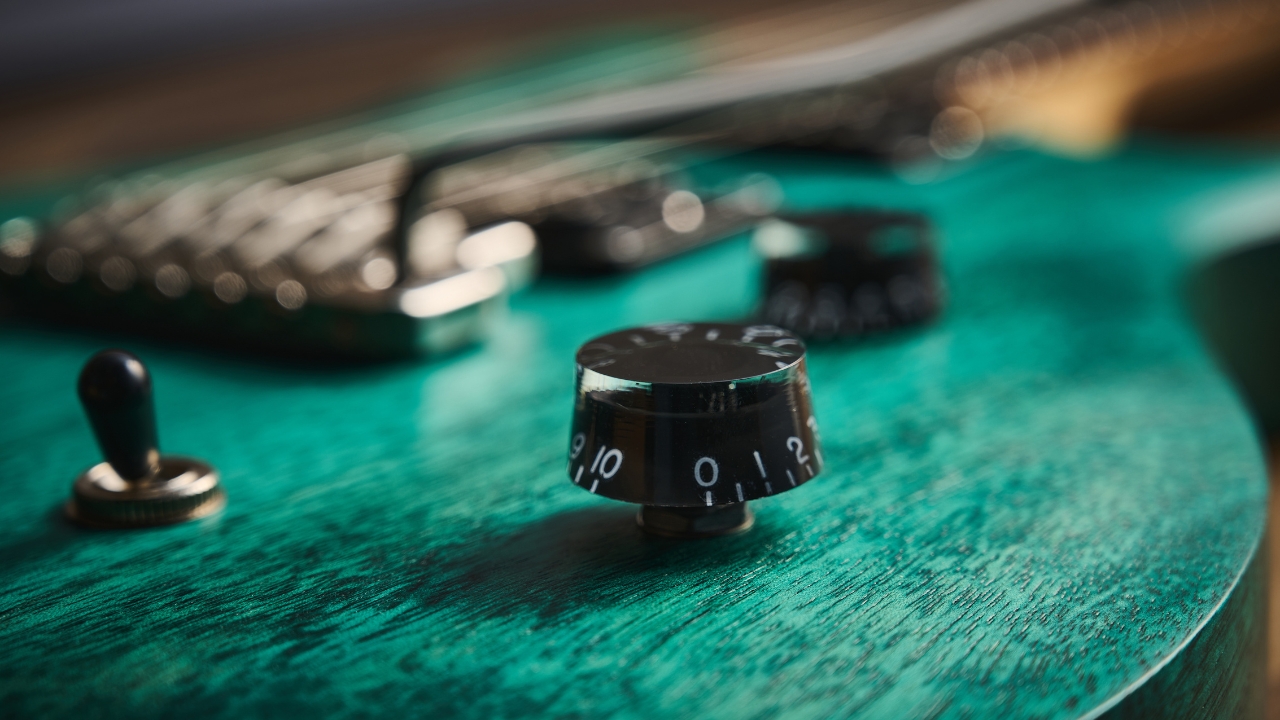
Any great budget electric guitar should achieve two key things: it should feel great and sound great. While looks are a huge selling point for guitarists, we’d always recommend sacrificing that fancy paint job - which could push up the price - in favor of an instrument with a solid build.
Whenever you're looking to buy a guitar, whether it’s $500 or $5000, you should check that some key areas are up to scratch. On cheaper guitars, these are often the areas where they fall short.
Frets: It may seem like something that is pretty similar on the cheapest electric guitars and the most expensive, but there can be a vast difference. Thankfully most guitar brands won’t let a guitar out of the factory with a bad fret job, but it’s always worth checking them out just to be sure. Are the edges a bit sharp? Do they protrude out from the edge of the fingerboard? If you’ve bought a guitar suffering from these issues, all hope is not lost! Take a visit to a guitar tech who should be able to sort them out. Sharp frets will stop you wanting to play the guitar - and that’s exactly what we don’t want to happen.
Hardware: This is another crucial factor in what makes a cheap electric guitar good. All of the guitars in this guide feature solid and durable hardware which, if cared for and maintained correctly, will see you through most of, if not all of your guitar playing career. If your hardware isn’t up to scratch, you’ll have problems with your tuning, intonation and the playability of your guitar will suffer—so we think it’s worth spending some money and getting a well-made instrument with good hardware.
Neck: Comfort should always be high on the list of priorities when considering a new instrument. A solid neck made of good quality wood is a necessity to have a great playing experience. If in doubt, maple necks are widely used and considered the benchmark in neck quality. Also, consider the finish on the neck - satin or gloss - neither is worse than the other, but you may have a preference. Ideally, it’s worth trying a neck in your hands before buying to make sure it works for you, but if you are buying online try to watch some demonstrations where players can describe the neck to you.
Pickups and electronics: Less important than you may think on cheaper guitars, particularly in comparison to the playing feel and build quality, however many budget guitars do have impressive pickups. Always consider the style of music you would like to play as certain pickups are better for different genres, for example, high gain tones tend to be easier to achieve with humbuckers. If you do buy a guitar and you’re not sold on the pickups, it’s pretty simple to swap them out.
The intricacies of guitar necks can be confusing, so if you’re unsure of what some of the terms mean when referring to a neck—for example, neck shape or fretboard radius—why not check out our guides on neck profiles and fretboard radius.
FAQs
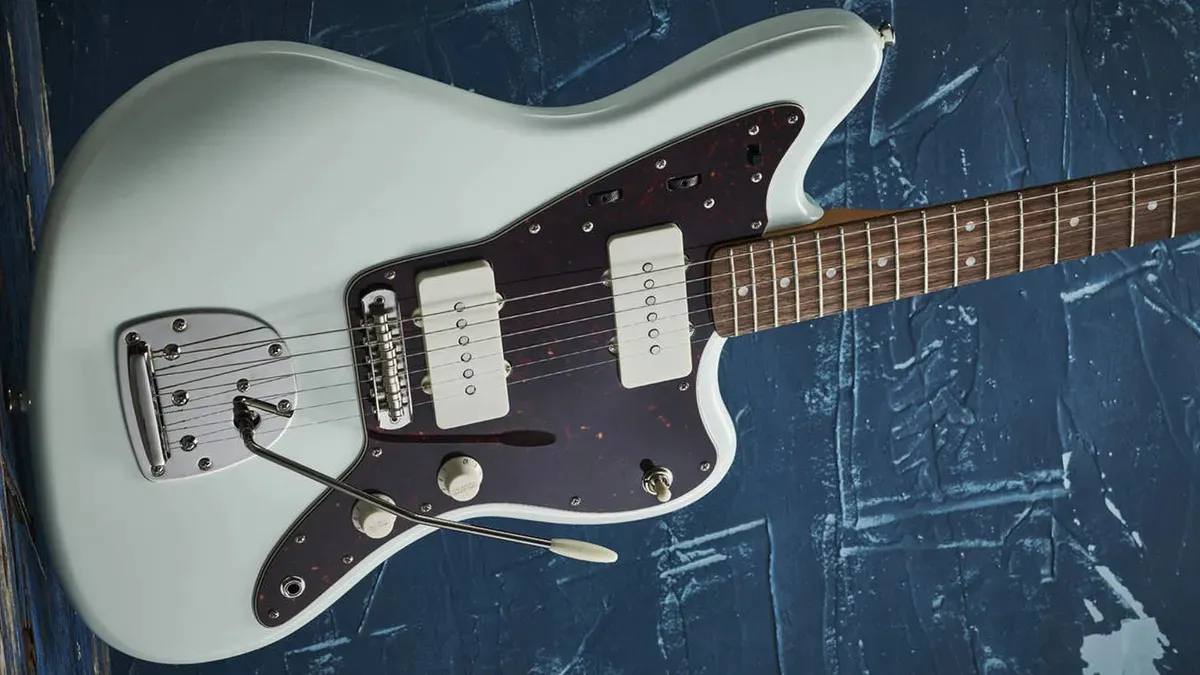
Are guitars under $500 worth it?
Simply put—yes! The $500 price point is something of a sweet spot in terms of the quality-to-price ratio. There are countless options at this level that are vast improvements over budget starter instruments, making them perfect for intermediate players looking for their second guitars, or beginners looking to invest in a higher quality instrument.
However, this doesn’t mean more seasoned players shouldn’t consider this price range as well. If you start looking above, into the $600–$700 range, the gap in quality compared to sub-$500 guitars may be smaller than you’d think.
Of course, there will always be room for more lavish, expensive guitars, because it’s simply not possible to produce a guitar with the same materials and labor used in, for example, a custom shop guitar at a budget price. That level of craftsmanship warrants a premium price tag.
In sub-$500 guitars, you may notice imperfections in hardware components like tuning machines, bridges, and nuts. However, these parts are fairly simple to upgrade and shouldn’t discourage you from investing in one. In fact, many players love buying more affordable instruments precisely to 'hot-rod' them with fresh hardware and a shiny new set of pickups.
Can I gig with a sub-$500 guitar?
Absolutely. Plenty of touring musicians gig night after night with guitars that cost less than $500, and not just as backups. In fact, using affordable guitars on the road has become a smart, practical choice even for players who own high-end American gear. Why? Because there is simply less at stake. If something happens to your Squier Strat or Epiphone Les Paul Special on stage, it’s a lot easier (and cheaper) to replace than a vintage ’62 Strat or a custom shop model.
What's more, many modern budget guitars are built with gigging in mind. With solid hardware, dependable tuning stability, and tone-packed pickups, today’s sub-$500 electrics can absolutely hold their own on stage. Add a good set-up, and you have a gig-ready guitar that punches well above its price tag.
Plus, if you do decide to hot-rod an affordable electric guitar, upgrading the pickups will certainly get you within the range of that expensive model you’ve left at home.
What style of guitar should I choose?
The really good news about electric guitars under $500 is that there are so many of them, so you shouldn’t be limited. If you’re unsure, it’s worth listening to your favorite players and finding out what style of guitar they play, because there is likely to be a sub-$500 electric out there in that style.
Alternatively, consider what genre you most enjoy playing, as some guitars will be optimized for that style and sound—for example, humbucking guitars—such as Epiphone Les Pauls, or the more ‘pointy’ offerings from Ibanez and Jackson—are traditionally ‘hotter’ with more output than single coil guitars such as Squier Stratocasters and Telecasters. If you’re unsure of exactly what kind of genre you’ll play, a guitar such as a Squier Affinity HSS (Humbucker, Single, Single) Stratocaster is a versatile option that covers most of your bases.
Is there anything else I need to think about?
Guitars can come with a lot of different features that vary from model to model. For example, some come with a vibrato or whammy bar. If this isn’t something you see yourself taking advantage of, then it may be wise to avoid it. Likewise, a guitar with a locking tremolo such as a Floyd Rose requires a little more work to maintain and restring, so if you don’t need it, go for a fixed bridge guitar.
Then there’s the physical aspect of holding a guitar for hours on end. Do you prefer the sonic muscle of something heavy or instead like the idea of something less taxing on the spinal column? Ultimately, you should go with whatever feels most natural under the fingers. Try as many models as you can. See if you can remember what was different about the guitars you liked and the ones you didn’t, bearing in mind that action and string gauges can always be adjusted to suit each player.
How we choose products
At Guitar World, our team of writers understands that not everyone is able to spend loads of money when they're after a quality instrument. When it comes to selecting the best affordable electric guitars under $500, we merge our love for accessible gear with a discerning eye for performance to give you a great recommendation.
Navigating the budget-friendly guitar landscape requires a keen understanding of playability, tonal versatility, build quality, and, of course, value for money. We've extensively tested a variety of options, from classic designs to modern innovations, ensuring that our recommendations not only fit the budget but also exceed expectations in terms of sound and craftsmanship.
When testing an instrument we'll look at every aspect from the quality of the hardware to the sound of the pickups, testing in a variety of scenarios whether it's playing at home or blasting it through a tube amp on stage. We'll check the fret ends, the action, and the intonation out of the box, judging how easy it is to make adjustments and whether it will need further work to make it playable to a good standard.
We've selected options for beginners embarking on their musical journey or experienced players seeking a reliable backup. Each recommendation has earned its spot through rigorous testing, guaranteeing that whether you're strumming chords or unleashing blistering solos, our suggested guitars under $500 will be your trusted companions on the road to musical excellence.
Why you can trust Guitar World
☑️ A global audience of 3.8 million guitarists monthly
☑️ 1,200+ reviews on GuitarWorld.com
☑️ 30+ years of product testing at Guitar World
Guitar World boasts over 44 years of expertise and stands as the ultimate authority on all things related to guitars. The magazine and website feature expertly written gear round-ups and top-quality, authoritative reviews penned by a team of highly experienced industry professionals.
Guitar World's inaugural print issue hit the shelves in July 1980, and ever since, it has been captivating players and enthusiasts with engaging lessons, insightful interviews with the biggest guitar heroes, and priceless buying advice for newbie players.
Furthermore, GuitarWorld.com continues this legacy online and serves as the hub of the world's foremost authorities on guitar playing. The site not only hosts content from Guitar World but also showcases articles from respected publications such as Guitarist, Total Guitar, Guitar Techniques, and Bass Player. With a reach extending to 3.8 million players each month, GuitarWorld.com is a go-to destination for guitar fanatics globally.
Meet the experts

Amit has been writing for titles like Total Guitar, MusicRadar and Guitar World for over a decade and counts Richie Kotzen, Guthrie Govan and Jeff Beck among his primary influences as a guitar player. He's worked for magazines like Kerrang!, Metal Hammer, Classic Rock, Prog, Record Collector, Planet Rock, Rhythm and Bass Player, as well as newspapers like Metro and The Independent, interviewing everyone from Ozzy Osbourne and Lemmy to Slash and Jimmy Page, and once even traded solos with a member of Slayer on a track released internationally. As a session guitarist, he's played alongside members of Judas Priest and Uriah Heep in London ensemble Metalworks, as well as handled lead guitars for legends like Glen Matlock (Sex Pistols, The Faces) and Stu Hamm (Steve Vai, Joe Satriani, G3).

Chris is the co-author of Eruption - Conversations with Eddie Van Halen. He is a 40-year music industry veteran who started at Boardwalk Entertainment (Joan Jett, Night Ranger) and Roland US before becoming a guitar journalist in 1991. He has interviewed more than 600 artists, written more than 1,400 product reviews and contributed to Jeff Beck’s Beck 01: Hot Rods and Rock & Roll and Eric Clapton’s Six String Stories.

Matt is a Junior Deals Writer here at Guitar World. He regularly tests and reviews music gear with a focus on guitars, amps, pedals, modelers, and pretty much anything else guitar-related. Responsible for over 60 buying guides, a large part of his role is helping guitarists find the best deals on gear. Matt worked in music retail for 5 years at Dawsons Music and Northwest Guitars and has written for various music sites and magazines including MusicRadar, Guitar Player, Total Guitar, Guitar.com, Ultimate Guitar, and Thomann’s t.blog.

Connor is a contributor to Guitar World and MusicRadar. Having been a guitarist since the age of 10, he's played bass and guitar in bands across the South West of England. He has a background in audio engineering, having worked in some of the UK’s best studios including Rockfield and Invada, and has a passion for recording guitar. He is always keen to discover the greatest gear for capturing tone, be that microphones, audio interfaces or cab simulators.

Ross has been a music lover and guitar player since the age of 8. He has spent the five years since graduating from university working in music retail, selling guitars, amps and more. Ross is particularly interested in electric guitars, pedals and amplifiers and his current rig includes a trusty 2009 American Standard Stratocaster and Vox AC30S1 with a few Walrus Audio and Way Huge pedals in between.
Latest updates
28/05/25: The guide has been updated to include the Yamaha Pacifica 112V and each product entry now features individual star ratings. The guitars also now have expert verdict panels where applicable and the FAQ section has been expanded.
Read more
You can trust Guitar World
- Meet the best electric guitars under $1,000
- Got more to spend? These are the best electric guitars under $2,000
- Blow the budget with the best high-end electric guitars
- These are the best acoustic guitars under $500
All the latest guitar news, interviews, lessons, reviews, deals and more, direct to your inbox!
Amit has been writing for titles like Total Guitar, MusicRadar and Guitar World for over a decade and counts Richie Kotzen, Guthrie Govan and Jeff Beck among his primary influences as a guitar player. He's worked for magazines like Kerrang!, Metal Hammer, Classic Rock, Prog, Record Collector, Planet Rock, Rhythm and Bass Player, as well as newspapers like Metro and The Independent, interviewing everyone from Ozzy Osbourne and Lemmy to Slash and Jimmy Page, and once even traded solos with a member of Slayer on a track released internationally. As a session guitarist, he's played alongside members of Judas Priest and Uriah Heep in London ensemble Metalworks, as well as handled lead guitars for legends like Glen Matlock (Sex Pistols, The Faces) and Stu Hamm (Steve Vai, Joe Satriani, G3).
- Chris Gill
- Matt McCrackenJunior Deals Writer
- Ross Holder
- Connor Godfrey
